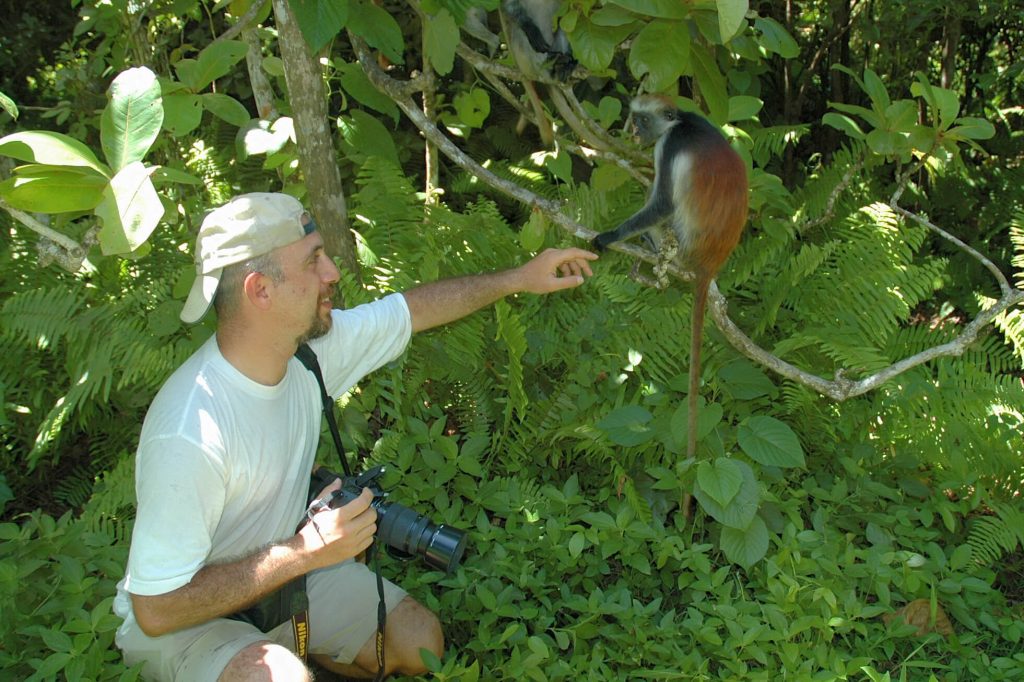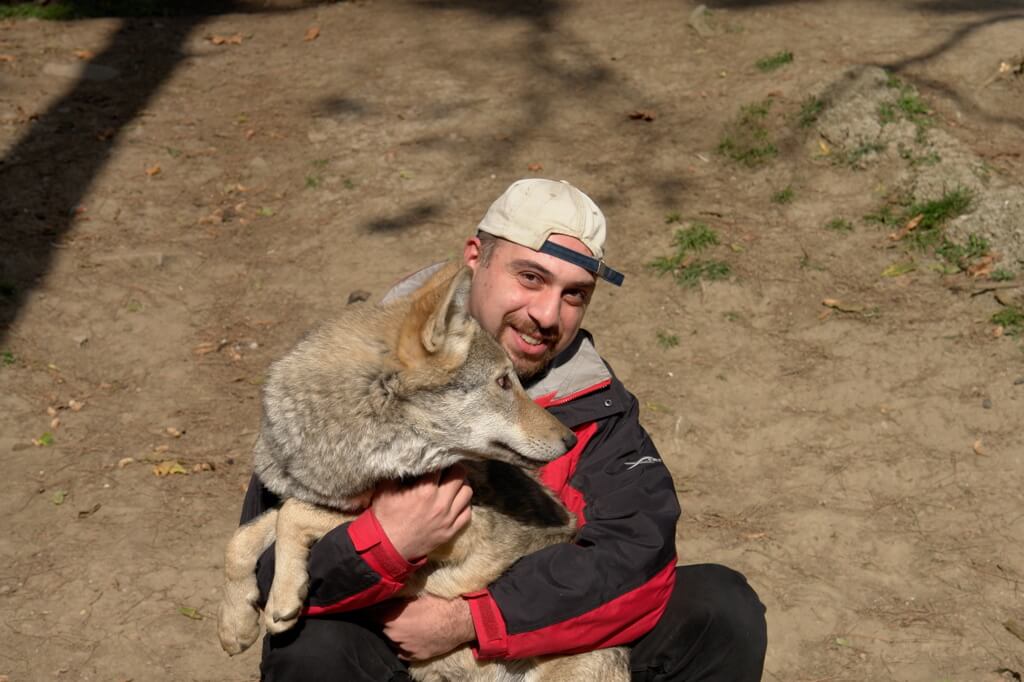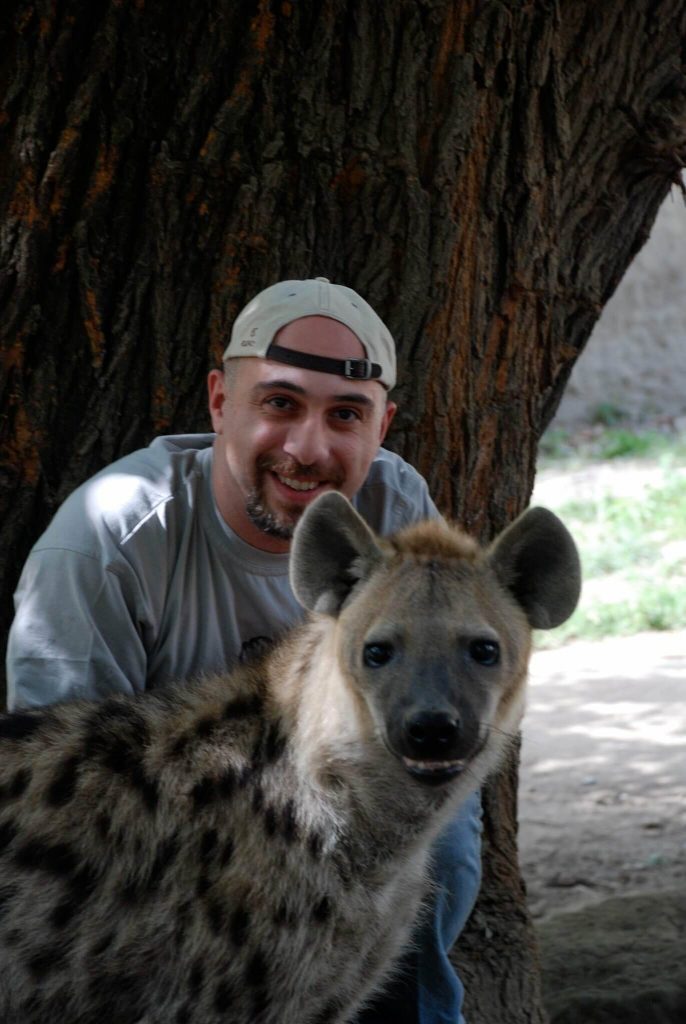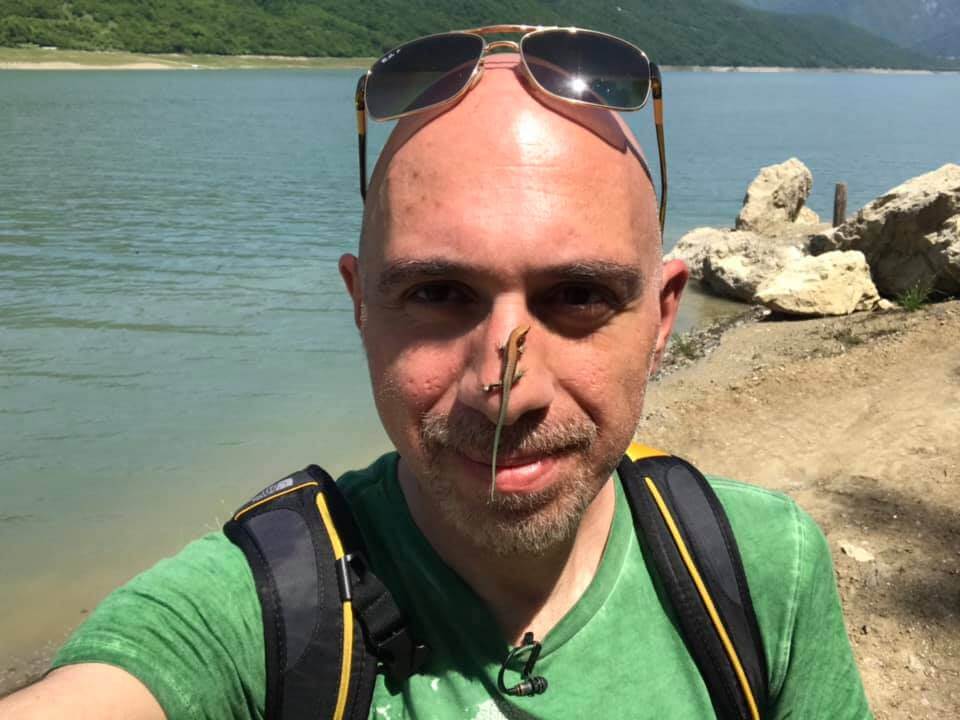Ambassador of SDG 15: Life on Land
Biologist and Founder of SEED Georgia, Levan Butkhuzi

How would you explain SDG 15: protecting terrestrial ecosystems and preserving their sustainability? How is it possible to achieve this SDG?
The key phrase here is the “preservation of sustainability,” that is, the sustainable use of resources. Since the conservation of the ecosystem and the use of resources require sound management, SDG 15 is about the sustainable management of ecosystems. When we talk about ecosystems, we, as the inhabitants of the geographical belt with forest ecosystems, recall the problems caused by the irregular (unsustainable) management of this most important terrestrial segment of biodiversity.There is also the second part of the problem, which is caused by the process of desertification, which is a huge problem for the whole world, including Georgia. Desertification is especially noticeable in the southeastern part of our country, where there are arid and semi-arid ecosystems. I should mention that Vashlovani Protected Areas and Davit Gareji represent unique ecosystems, and, unfortunately, the desertification process is continuous there. To prevent irreversible soil degradation, proper management is essential. These are the main problems, and SDG 15 aims to solve these challenges. Sometimes the banal question is asked – why is it so important? Life has several synonyms. “Bio” is alive, and biodiversity is synonymous with a variety of life. Where there is no biodiversity, there is no diverse life. And where there is no bio, there is no life.

What are the challenges in the sustainable management of the terrestrial ecosystems in Georgia?
In different eras, mankind has had an impact on nature in different ways, and, naturally, this impact is, and used to be, of varied natures. One of the most severe biodiversity problems is the extraction of minerals in an unsustainable manner. For example, the harmful method of open pits or completely illegal extraction of gold, common in many parts of the world, poses a great threat to biodiversity (including forests), among other problems. This is sometimes the cause of irreversibly dangerous processes.
Industrial constructions designed for immediate profit or pseudo-profit are no less harmful, for example, huge highways, giant hydroelectric power plants, and dams. It is clear that, for economic development, there is a need for economic projects. Still, sustainable development implies preventing harm to ecosystems so that we profit (including financial profit) from nature for an extended period of time.
In general, mega-projects should be the subject of serious scrutiny, and we should look at them under a magnifying glass to ensure that a thorough environmental impact assessment is performed for each mega-project.
Furthermore, there is a third problem – erroneous, unsustainable agriculture. In this case, I am talking about animal farming, which, if planned and implemented incorrectly, inevitably leads to severe soil degradation. This is often the beginning of a heavy process of desertification.
Urban biodiversity is very important for city populations. Count how many “green islands” we have left in Tbilisi—practically none. And, whatever we do have, it is a drop in the ocean compared to the size of the city. That’s why I say that we practically don’t have any. This is mainly caused by irresponsible business practices supported by the irresponsible State, as business takes over the green areas with industrial or other development projects. The unfortunate outcome is that such projects not only damage the “green islands” of the city but are often counterproductive for the business itself.
One of the fundamental problems concerns the enforcement of laws. We do not have an effective rule of law in Georgia. The notoriously ill-functioning judiciary is the most apparent manifestation of this.
However, the most important problem is the poor education quality and low awareness level. I do not mean so-called erudition (reading many books), but rather the number of citizens who lack critical thinking skills due to poor education.

“If each healthy voice is united in a small community, a small group, or a small business team, all this will become a healthy and loud voice of one State. Then we will be able to do everything. And then no one can interfere with us!“
What are the solutions to these challenges? Who is responsible?
One player alone cannot be responsible because the problems are complex. Suppose we divide it mechanically (conditionally). In that case, there are two sides: on the one hand, it is a person, an individual, a citizen and, on the other hand, the State, represented by the government. Everything starts with the responsibility of a citizen. All the rest is just an additional layer. People create a community in our villages, districts, and cities. These communities then form larger populations. Thus, societies and states are created. That is, before we discuss the responsibility of the State and the government, we must be aware of the individual’s responsibility. We mentioned education and critical thinking. In this context, it is very important that at least 30-40% of the population receives a good education, which will be based on the right values. If this minimum is ensured, there is a better chance of cultivating the right values in a relatively shorter time. Such a society will surely elect a responsible government. A responsible government will try to create all the conditions for prosperity and the well-being of the country.

“As for our cooperation with business, my guiding philosophy is that even small partnership projects with businesses can yield significant results.“
Do you see any efforts of partnership in Georgia to achieve SDG 15? What can we do to achieve the said goal? How does your organization “SEED Georgia” contribute to fulfilling this goal and the partnership between different sectors?
In my opinion, only the seeds of achieving this goal can be seen. Institutions like my organization alone cannot change anything. Media, taken separately, and the business sector alone can’t change anything. After realizing this, “SEED Georgia” chose education as its priority: the field that unites all the players. Despite the relevance of print media to this day, the 21st century is still at the beginning of the era of digital technologies. Television is also very important, and I would not say that it has declined considerably, but the next generation has almost completely switched to “gadgets.” Therefore, social networks have gained a lot of importance. Considering this fact, “SEED Georgia” tries to be more active on social media networks. We refused the print media and materials for environmental reasons and because our target audience gets information mainly from social networks. That’s why we effectively promote sustainable development and environmental protection ideas in this regard. As for our cooperation with business, my guiding philosophy is that even small partnership projects with businesses can yield significant results. In such projects, businesses often see that sustainability is very beneficial in the long run, and the wise saying that “today’s egg is always better than tomorrow’s chicken” becomes evident.
What would you advise the business sector – how can they contribute to the sustainability of terrestrial ecosystems and biodiversity in Georgia?
Why do people do business? To become rich and live a prosperous life for themselves and their families. People are trying to save money and get a good education for their children. This whole process creates many quality jobs, and the upward spiral begins. So, we all know that investing in the future is a wise approach.
Sustainability management in business implies that the only hen that lays the egg is not killed; instead, the only “chicken for tomorrow” is taken care of. In the end, you end up with a lot of chickens in the yard and many eggs in the basket.
Finally, we must admit that a sustainable State relies on a sustainable business. If, in the 21st century, you aspire to become the owner of a serious business that is respected worldwide, you must become responsible for the environment and have a sustainable approach and a long-term vision. Every business person knows that reinvestment and development are necessary. At the same time, everyone wants resources to be inexhaustible. For the resources to be inexhaustible, careful and thoughtful management is necessary. In the first place, to build the “heavenly Georgia” in this world, the State must declare a merciless war against illiteracy. Without this, we cannot have a State. Secondly, I would appeal to individuals, including myself: each person should feel that they can change the world and that their one voice matters. If each healthy voice is united in a small community, a small group, or a small business team, all this will become a healthy and loud voice of one State. Then we will be able to do everything. And then no one can interfere with us!




 Search
Search





